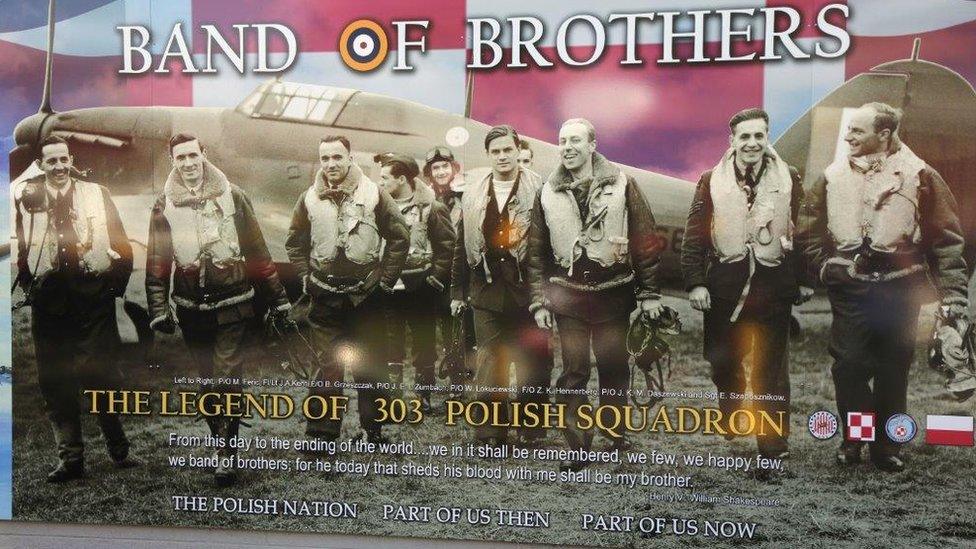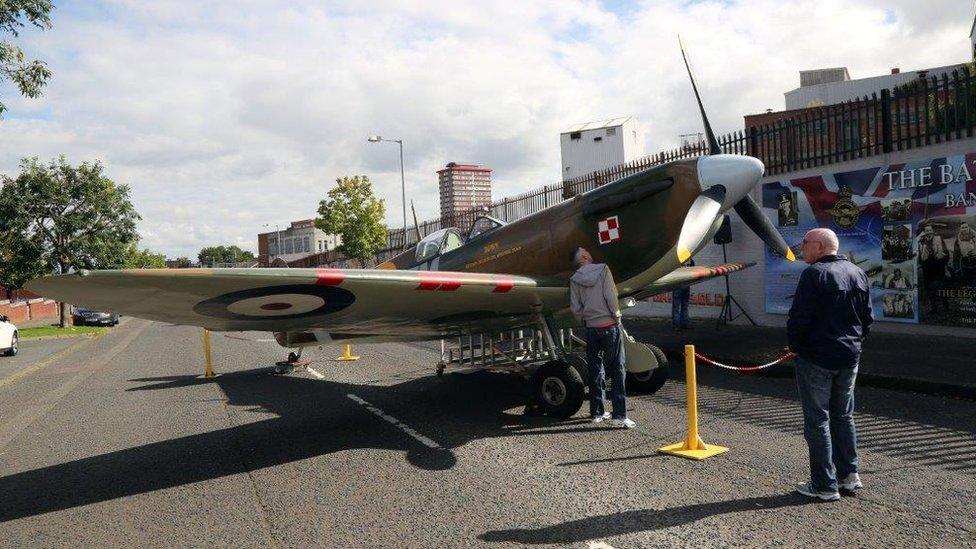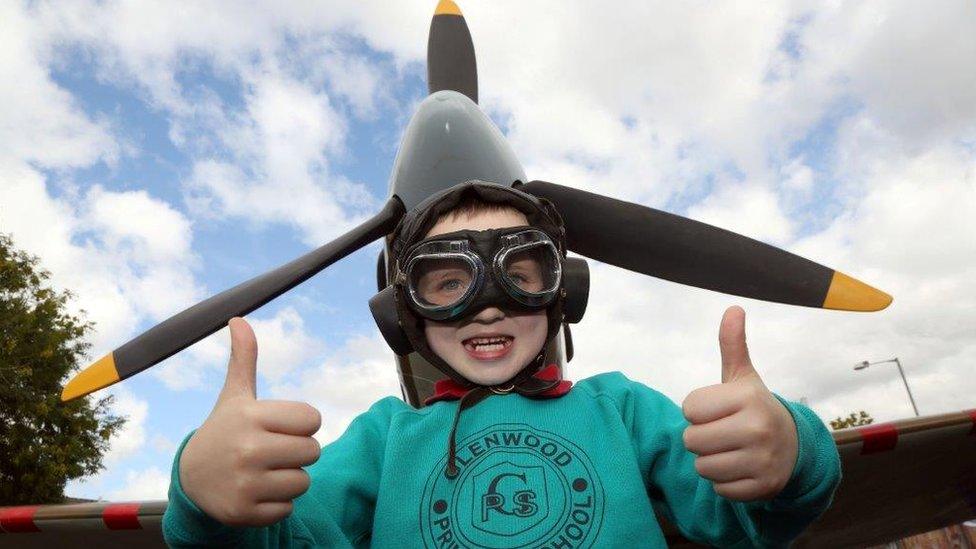Band of Brothers: Polish airmen focus of anti-racism project
- Published

The mural commemorating the Polish airmen was unveiled at the junction of Northumberland Street and Beverley Street in the Shankill area of Belfast
The heroics of a squadron of Polish airmen based in Northern Ireland during World War Two are being remembered through a series of murals.
The murals are to be unveiled across Northern Ireland as part of an anti-racism project.
They have been painted in areas which have suffered race hate attacks.
The project, called Band Of Brothers, focuses on the role of 303 (Polish) RAF Squadron, which was stationed in Northern Ireland from 1943 to 1944.
Band Of Brothers is the brainchild of Ballyhalbert-based journalist and RAF historian Pete Bleakley.
"Having worked closely with both the Housing Executive and loyalist communities during 10 years in community television, it occurred to me that perhaps events 75 years ago in the skies over Kent could help positively shape events on the ground in Belfast in 2015," Mr Bleakley said.
"The Battle Of Britain, and our freedom as a nation, was won in no small way by the bravery of those Polish pilots, whose wartime motto was, 'Love Demands Sacrifice.'

A World War Two Spitfire was brought to the unveiling of the mural in the Shankill area
"They fought ferociously for their freedom and ours. The Poles were part of us then and they are part of us now."
'RAF on the ropes'
The first mural is in the Shankill area of west Belfast and tells the story of 303 squadron and its performance and sacrifice in the Battle of Britain.
The Battle of Britain was fought between July and October 1940 between the RAF and the German Luftwaffe and is seen as a pivotal moment in Wold War Two.
"Historians now agree that Polish squadrons like 303 turned the Battle of Britain at a critical time," Mr Bleakley added.
"The RAF was on the ropes. They [303 squadron] had experience over Poland and in the Battle of France, so when they were unleashed against the Luftwaffe they went in very hard.
"On their first combat day - 1 September 1940 - they shot down six ME109s, so they had a very significant impact immediately.
"They were there to kill Germans in revenge for what the Germans were doing in their homeland. There's a very rich vein of shared history - the history of our two countries goes back a long way."
Vanda, the daughter of one of the Polish airmen, said the murals made her feel proud.
"My father came to Northern Ireland and was put into Ballyhalbert aerodrome along with 303 squadron and 315," she said.
"I'm very proud and when I look at these murals today of what they achieved, [the men] gave their all in defence of this country.
"But I will also feel very sad, because at the end of it all the goal was to go back to their war-torn country and start afresh, but they didn't really get that chance."

Six-year-old Cameron Dillon attended the unveiling of the mural and got to see inside the Spitfire